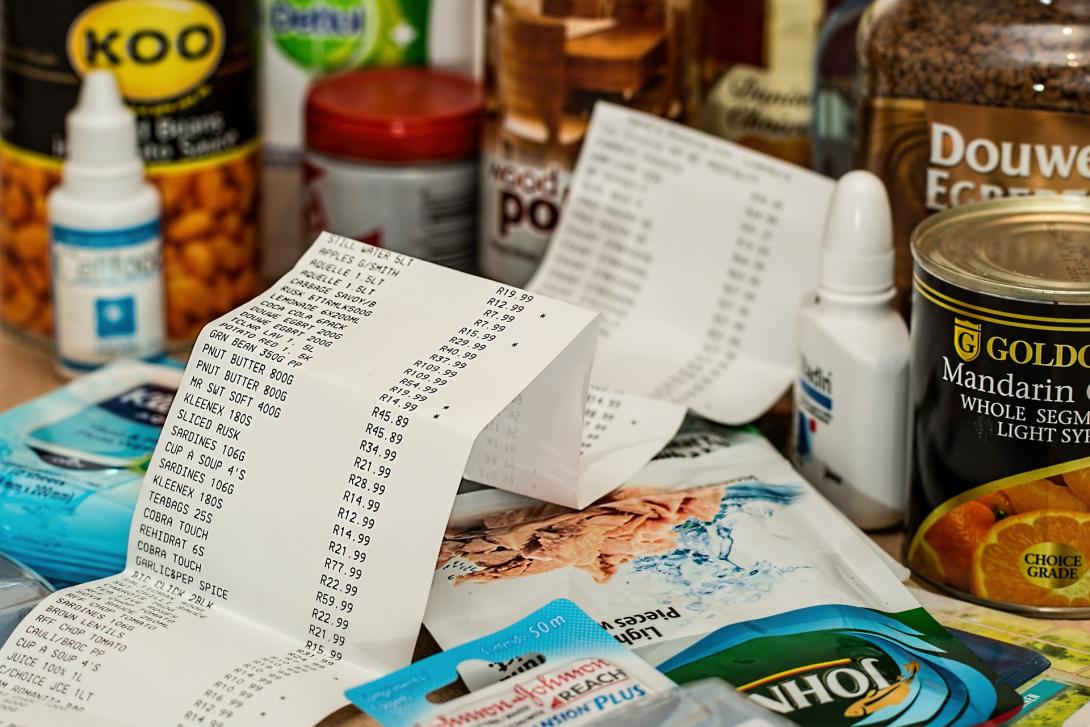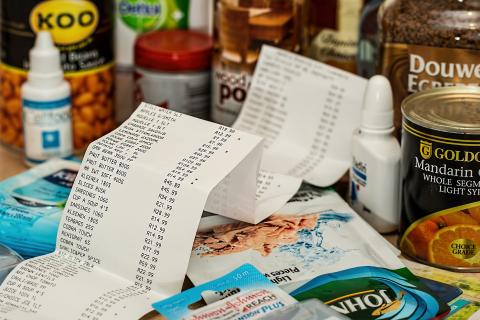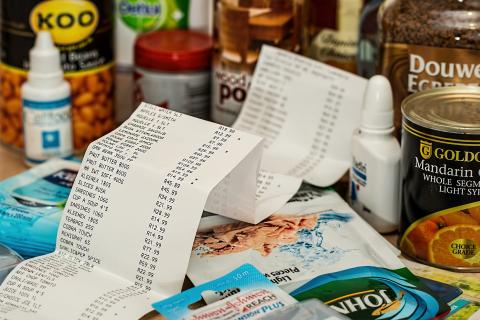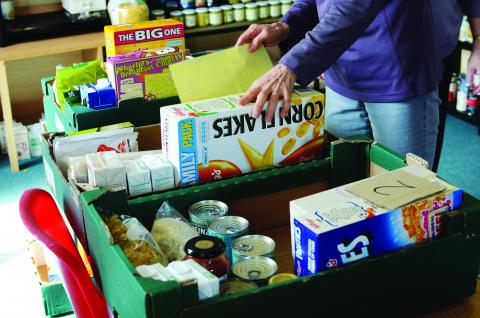25 April 2024
Food Prices Tracker: April 2024

By Josh Day
Food inflation falls to 2.9% (CPIH) according to government data
Latest data from the Office of National Statistics finds that overall inflation has fallen to 2.3% (CPI) in the 12 months to April 2024. Food inflation has also continued to ease, reducing to 2.9% (CPIH). High food inflation has been a major contributor to rising overall inflation and recent decrease have played a large part in inflation slowing. Falling inflation does not mean that prices are coming down but that they are rising more slowly.
What is The Food Foundation's Basic Basket?
The Food Foundation first began tracking food prices as the cost of living crisis began to make it increasingly difficult for people to afford the food they needed.
The Food Foundation’s Basic Basket tracker measures weekly prices of a basket of food for an adult male and adult female that makes up a reasonably costed, adequately nutritious diet. This aims to provide a benchmark to give an indication of trends in food prices and how this might be impacting on the cost of buying sufficient food. Unlike the Office for National Statistics’ food inflation measure, the Consumer Price Index, The Food Foundation Basic Basket Tracker aims to reflect the change in price of a reasonable weekly food shop and takes health into account.
The products in the Basic Basket are based on the Minimum Income Standard (MIS) basket which was developed by Loughborough University’s Centre for Research in Social Policy (CRSP). CRSP developed the basket through discussion groups with working age adults, forming case study menus that were then adjusted by a nutritionist to meet nutritional standards and developed into a weekly shopping basket.
The price of each basket is calculated by taking the cost of each item in the basket from the Tesco online website, and then calculating the cost of the portion of the product that would be consumed that week. This results in weekly costs of eating the foods within the basket. Tesco was chosen as this is the retailer at which the MIS food basket is also costed. The focus groups suggested that the food should be costed in a supermarket where you are able to do an entire weekly shop in one go rather than having to shop around, and Tesco has the largest grocery market shares in Great Britain at 27.3%
What has happened to food prices over the last two years?
Although food inflation has slowed, food prices remain remember high, and this continues to have a significant impact on people struggling across the UK. Since exactly two years ago, the woman’s basket of food has increased in price by 24.1% (non-Clubcard price), costing £50.83 per week. The male basket has increased by 26.6% (non-Clubcard price), costing £55.10 per week. This illustrates how though we may see lower rates of inflation, the reality for many is that the cost of food remains high.
Increases in the cost of essentials such as food or energy disproportionately affect those on lower incomes who have to spend a much larger proportion of their income on them. This means that, concerningly, as food prices rise those already struggling are squeezed even harder. Over the last two years these dramatic increases in the cost of food on supermarket shelves has had a profound impact on people across the UK and their ability to eat a complete and healthy diet. The Food Foundation’s recent food insecurity data showed that 8 million adults live in households that experienced food insecurity in January 2024. Furthermore, 44.2% of households who had experienced food insecurity reported to have purchased less vegetables and 59.9% said they had cut back on purchasing fruit.
The price of food remains a significant barrier, not just to being able to afford enough food, but also to eating a healthy diet. Analysing data gathered through our Basic Basket tracker over the 2 years shows that not only has the overall cost increased but that these increases were even more significant for vegetables in the basket. The cost of the veg in the basket has risen by 39% on average, with some items like carrots increasing by as much as 150%. This is significantly higher than the overall increase of both the baskets and indicates that many may be being priced out of eating the healthy diet that they deserve.
To help families continuing to struggle with high food prices we are calling on Government to ensure that everyone can afford to eat a healthy and nutritious diet by:
- Increasing incomes: Require that the cost of healthy and sustainable diets be taken into account when setting benefits levels and the national living wage
- Strengthening nutritional safety nets for children: Expanding Free School Meals and Healthy Start to more children and increasing uptake through auto-enrolment.
- Make healthy foods more affordable: Explore using taxes and subsidies to rebalance prices of healthy and unhealthy foods.

Josh joined The Food Foundation in 2023 as part of the Rank Foundation’s Time to Shine scheme. He completed a BA in Film Studies before continuing to study an MA in Culture and Critical Theory. Before moving to The Food Foundation Josh worked in a variety of roles in a primary school setting, utilising his experience to support the most vulnerable and disadvantaged members of the school community. Josh is interested in the impact that food systems and environments have on people's lives and is driven by a desire to ensure people have better access to a healthy and nutritious diet.

Shona joined The Food Foundation as a Project Officer in 2019 and has worked on research, policy and advocacy across a range of projects over that time including leading our food insecurity surveys and flagship annual Broken Plate reports. She now works across the charity's policy portfolio including our children's food campaigns, food insecurity and food environments. She is a Registered Associate Nutritionist with a background in clinical nutrition who worked in dietetic departments in NHS hospitals before joining The Food Foundation.





